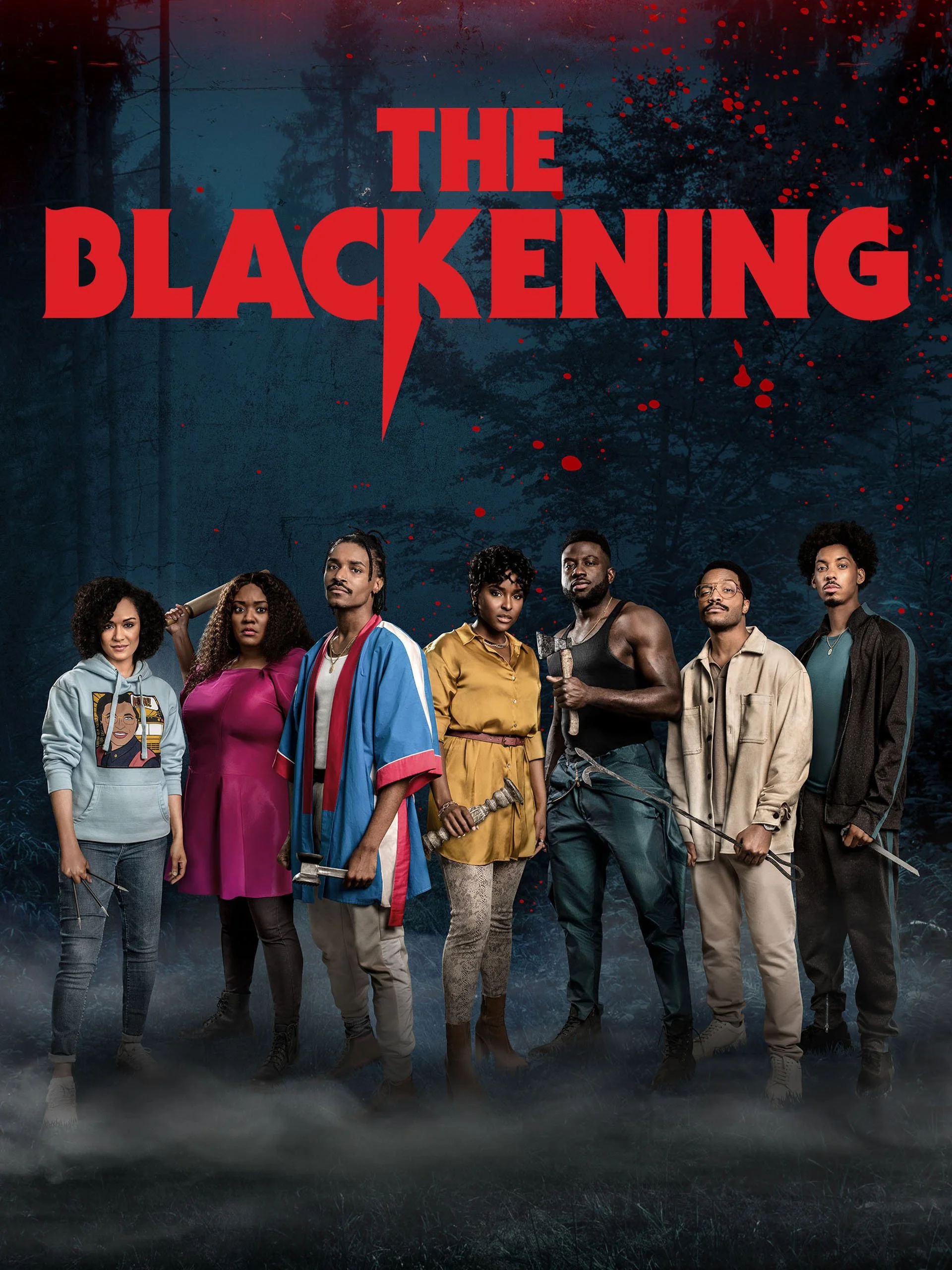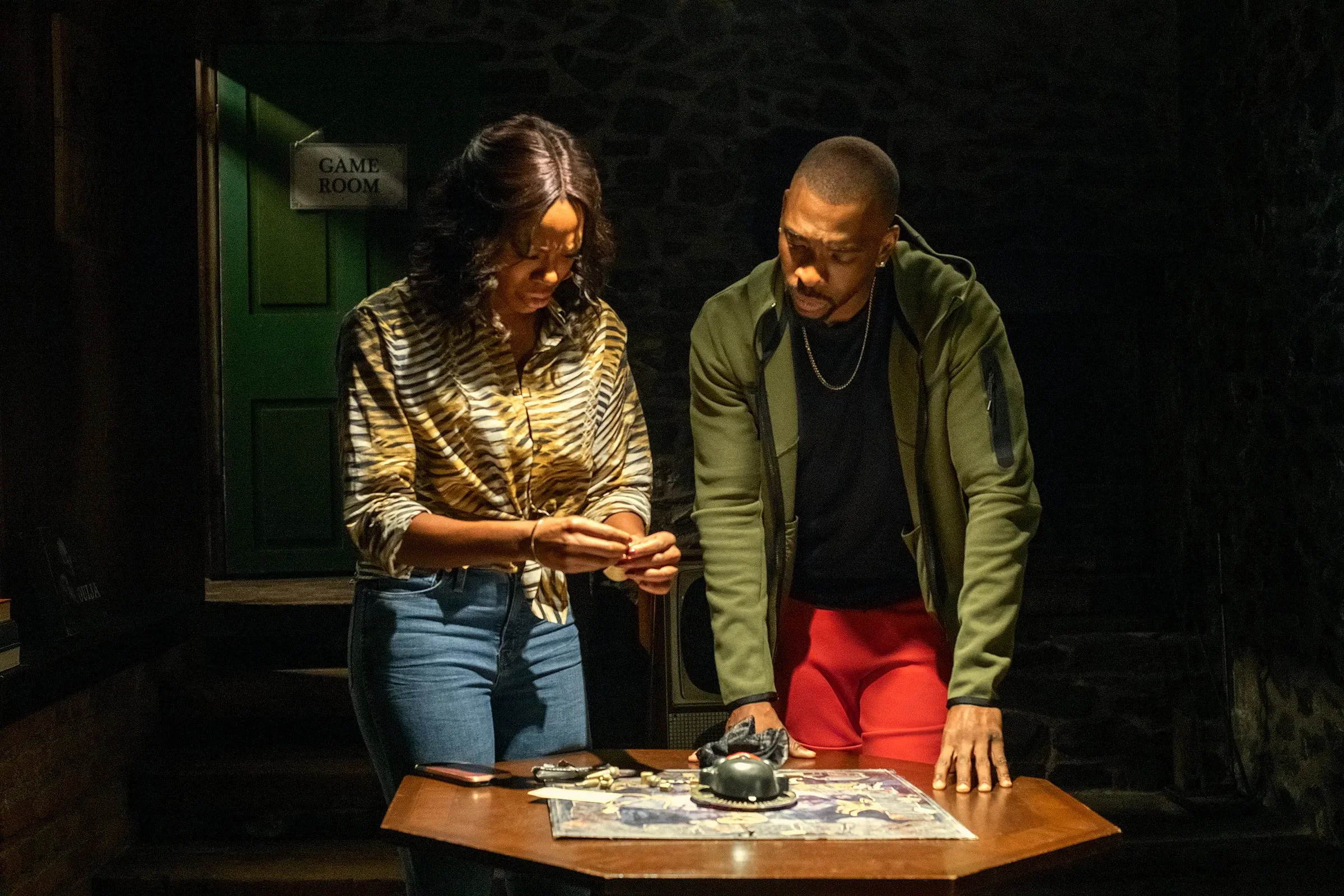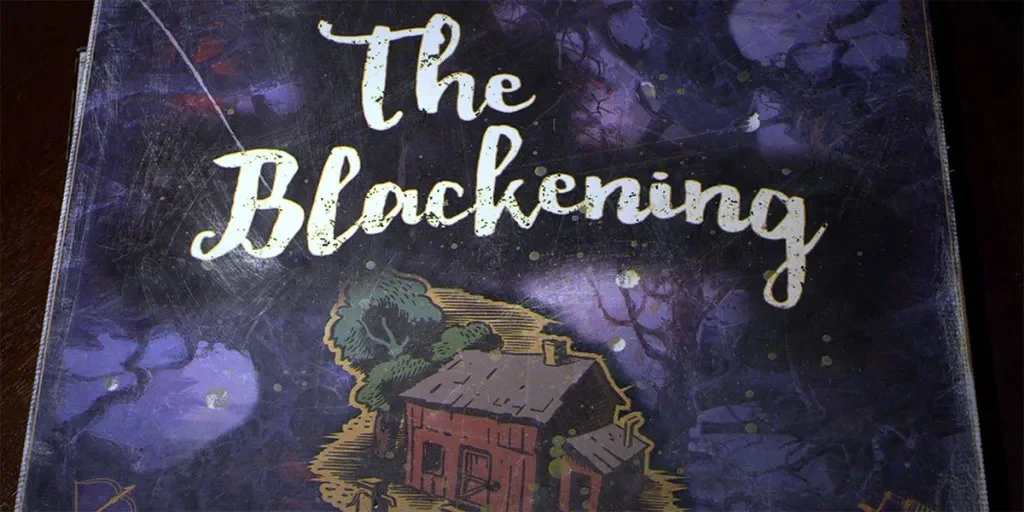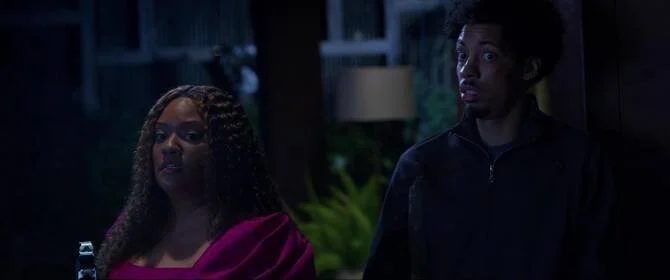If you know you’re going to be in a horror movie, there are a lot of places you don’t want to be. Isolated hotels, for example, well, that’s all work and no play, so you want to avoid them at all costs. I’d also really avoid creepy mansions or any sort of old, Victorian architecture where nighttime occurs, that’s generally a bad idea. The Haunting of Hill House and Bly Manor taught me that. Forget about summer camps. Summer camp was particularly harrowing for me as well; not only do I have to worry about bugs, sun stroke, dehydration, and nature in general (I am an indoor boy), but also psycho killers who died some milestone number of years ago on this very night? No thank you, can’t be bothered to learn what SPF I need, let alone deal with a resurrected murderer.
But there’s one place that is so especially horror movie that the fear of them has creeped fully into real life. That’s the cabin in the woods. It’s a location so horror iconic that there’s even a horror movie called The Cabin in the Woods. So when eight Black friends venture out into forest to have a little reunion and celebrate Juneteenth in a rented cabin, you can imagine their weekend plans are about to significantly change.
The Blackening opens with Morgan in the cabin, getting the place ready for the rest of her friends to arrive. Morgan, played by Yvonne Orji (Vacation Friends, Insecure), isn’t alone though. Her boyfriend Shawn, played by Jay Pharaoh (Saturday Night Live, Urkel Saves Santa: The Movie) is there with her, but he gets a rude awakening in the form of an elbow to the face when he tries to sneak up on Morgan and give her a fright. He directs Morgan to the game room where he shows her his discovery. A board game, sitting on a table in the middle of the room, called The Blackening. He opens the box to the sight of a talking head, complete with minstrel show blackface. Not a great start to game night, to be honest, but they decide to play anyway. The voice in the board tells them that they have to get every question right or they die; really not a great start to game night. The trivia card asks them to name a Black character who made it to the end of a horror movie. Morgan and Shawn fumble through, coming up with the names Omar Epps and Jada Pinkett Smith in Scream 2, but Morgan points out that they were the first ones to die. They exchange knowing glances when the mention that they felt like they were only killed off because the studio didn’t have the budget to pay for them to be there for the whole production because they were the two biggest names. It’s at that point, they learn just how not alone they really are.
And there’s the introduction to the metacomedy of The Blackening. As you can imagine, this particular trivia round doesn’t go well for Morgan and Shawn—I’ve had some rough nights at bar trivia, but never this rough. This opening scene is so good for a lot of reasons. For one, we get treated to, albeit for just a fleeting moment, Jay Pharaoh’s excellent impressions. But also, it sets up the entire tone of the film. It is self aware, it is meta, it understands the universe in which it, a Black-led horror film, lives and where it stands in that universe. It plays on the tropes that Black characters have existed in for at least as long as I can remember and it gives you a good sense for the tone of this movie. I mean, the tagline of the movie is “We can’t all die first”. Even the opening crawl lets you know that the film is looking to horror movies for its inspiration, being a movie “based on true events that never happened”. You’re in for a horror-comedy, with the emphasis being on the comedy.
Afterwards, we get to meet the main cast, and even though it is mostly full of names I didn’t recognize, it is one hell of a cast. A true ensemble movie, everyone gets their moment to shine in The Blackening. Okay, yes, it’s true that Dewayne, played by Dewayne Perkins (The Studio, One of Them Days) who also co-wrote the screenplay, does stand out above the others just a little bit, but overall, there isn’t a weak link in the bunch. Dewayne is driving to the cabin with Allison, played by Grace Byers (Empire, The Retirement Plan), and his best friend of the group Lisa, played by Antoinette Robertson (Dear White People), when Lisa lets the cat out of the bag that her old boyfriend Nnamdi, played by Sinqua Walls (Carry-On), will be there. And like any good friend, he’s concerned about that because Nnamdi used to cheat on Lisa all the time. This introduces not only a good bit of existing group dynamic, which makes the characters feel more lived-in and real, but it also introduces the near-telepathic communication using looks and glances between Black women, that apparently white folks can’t understand. In a movie that’s completely not supernatural, it is a very fun element, kind of like this movie’s version of shining from The Shining. We also have King, played by Melvin Gregg (whom you may recognize from The Paper, which admittedly endeared him to me immediately) and another standout character Shanika, played by X Mayo (The Farewell), who runs into Clifton at local gas station. Clifton, played by Jermaine Fowler (Sorry to Bother You, Coming 2 America), is stranded with a dead phone and a dead car, so Shanika gives him a lift to the cabin after loading up on wine and Rap Snacks at the station.
Once they get all reacquainted, they peel off to chat with each other and we get to see more of how the group interacts in different pairings. Allison gets teased often by the others for being half-white, Dewayne is not happy that Nnamdi is there, Nnamdi is eager to show King that he’s grown up since college, Shanika is ready to get wild, etc. It’s all very funny and their interactions had me in stitches with laughter. Eventually, as the spades game gets interrupted, they go looking for Morgan and Shawn and stumble upon the game room, finding The Blackening. They open it up and see a little pouch filled with personalized game pieces, each one representing a person in the group. And it’s a trap. Of course it’s a trap. The whole house seems to be rigged; closing, opening, and locking the doors at will, even controlling the lights. Forced to play by the voice, they start in on a quest of Black trivia to save their lives. The game, it seems, is a test of Blackness, asking questions about The Fresh Prince of Bel-Air, Nas songs, Black cultural icons, and more. Get one wrong, someone dies. Refuse to play, everyone dies. One more reason not to use Airbnb.
What ensues is a fight for their lives and a trip down Black stereotypes and horror movie tropes that will have even the casual fan of horror movies (or cinema in general) going absolutely hysterical with laughter, as I did. The cast works so well together and the writing elevates what easily could have felt like an all-Black version of Scary Movie into a proper satire. Don’t get me wrong, there’s plenty of place for parody like Scary Movie, but the writing here takes it out of the realm of parody and into the realm of commentary, and boy do I like that. Of course it helps actors get lost in their characters when you don’t have preconceived notions of actors (for example, I’m not sure I’d buy Tom Cruise as George Washington, right?), but I feel like the cast here has so much chemistry and impeccable comedic timing. It’s one of my favorite old sayings that dying is easy and comedy is hard, but here, both are very much on the table and the cast handles both sides of that coin wonderfully.
What’s more than that, though, is the commentary. What I think makes this movie so successful, like Attack the Block, is that you don’t have to engage with the social commentary to get an enjoyable experience out of this film. It’s very much still a very fun, very funny horror-comedy that blends elements of Scream, Saw, and other horror movies to create something that’s both unique and pays homage to the films that made it possible, even if you don’t want to get deep into what it’s saying beyond what’s written in the screenplay. But you know me and that’s why we’re here, so let’s look into what The Blackening is saying.
I should preface this by noting that I am not Black myself, but I’m going to do this carefully and, as always, I encourage you to seek out Black voices and listen to them—not just about this movie of course, but in general, and that goes for any marginalized community. But I’m going to do my best here, leveraging my own experience as a racial minority in America and some research I did before writing this. For one, it is so refreshing to see a movie that is about Blackness and doesn’t talk down to the audience about it. It has the feeling of authenticity about it which not all movies that address a Black experience can do. I think one of the most telling moments is when a literal white savior rolls in to help and despite saying all the right things, the immediate feeling is fear and distrust. And you can’t blame them even a little bit; there’s a world weariness that comes with being a minority in America, because everyone knows what the right things to say are. Even though the sentiment around open racism is rapidly changing in today’s America, for a long time people got very good at hiding it. It’s easy to learn the right words and pay lip service to them, but it’s harder to live by them and even harder to trust the person saying them. Even in a life and death situation, I understand the hesitation, because trusting the wrong person can lead to a terrible outcome under normal circumstances, without a crossbow wielding maniac hell bent on killing you. I joked with people once that the game Among Us was a perfect encapsulation of the minority experience in America; people look you in the face and tell you that you’re safe, they may even do a little dance to show you they’re a friend, and then they pop right out of their normal looking skin and the monster they really were straight up eats you. So believe me, I get it.
Then there’s the proving of their Blackness, the very premise of the game they’re forced to play. There are these external pressures that are put on minorities that lead to phenomena like code-switching. Code-switching, if you don’t know, is when people, largely minorities, change their language, manner of speech, or mannerisms based on who they’re around. This one is something I’m particularly familiar with as I’ve been doing it for much longer than I’ve known the term existed. So you go from one room trying to fit in with people of a different background to acting differently in the next while trying to fit in with people of the same background. Both times, you’re acting in a certain to show that prove that you are enough of any certain characteristic that marks as a part of that group. Allison is a great example of this problem in the film, because she has a white father, so her Blackness is constantly the butt of jokes and teasing for as long as they’ve known each other, but at some point in the film, each character has their Blackness questioned and tested as if that’s a thing that someone should have to prove. Co-writer Tracy Oliver said she wanted the movie to be a commentary on what it means to be Black and how there’s no one right way to do that, and as someone outside of the Black community, I think they did a great job. This is far too complicated for me to truly unpack, nor do I feel qualified to do so, but I will say that for a long time I used to listen to the LA Times podcast Asian Enough while that was still in production, and hearing those stories from other Asians and South Asians like me was extremely affirming when I’ve been called a coconut all my life (brown on the outside, white on the inside). So I can only imagine what it feels like for Black people to watch a movie so unapologetic in its Blackness as The Blackening.
But like I said, whether or not you choose to engage with this level of commentary that The Blackening offers, which I believe you should (and I’m sure there’s more I either haven’t touched on or didn’t register with me), it’s still an incredibly funny, well acted, and well written film that will add a great deal of laughs to your spooky season. For me, this is one of the top horror-comedies I’ve ever seen, sitting up in S-tier with movies like Hot Fuzz and Shaun of the Dead. At 1 hour and 37 minutes, it’s also a sensible length for a comedy, without ever feeling overstuffed or too light in detail. This R-rated comedy is available to stream on Netflix and is definitely worth adding to your Halloween ritual. And with a sequel officially confirmed, I can’t wait to see what’s next for this cast and crew.






